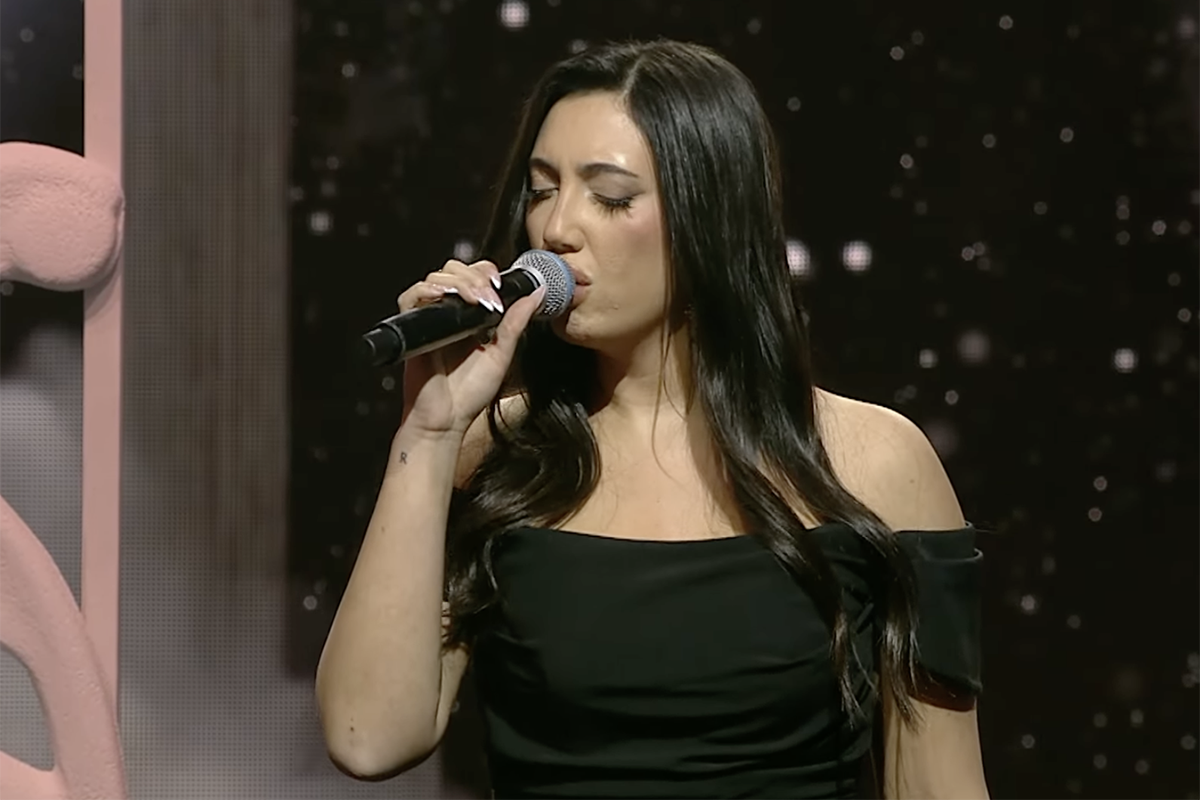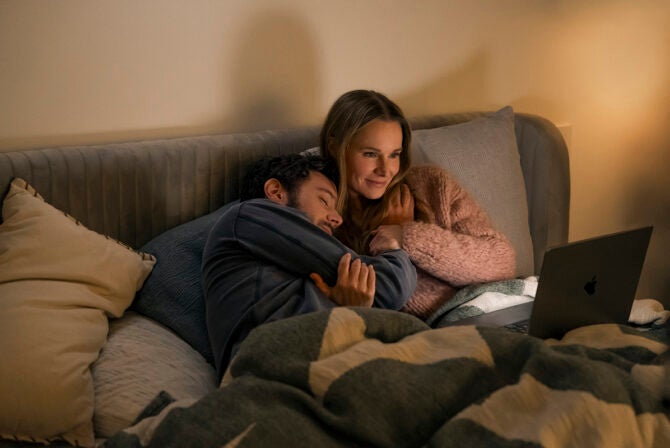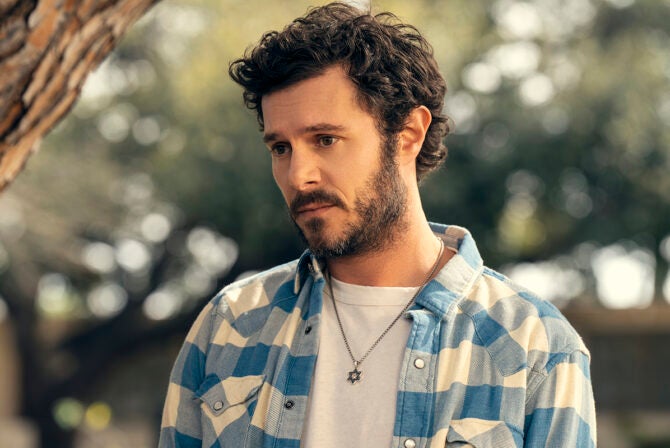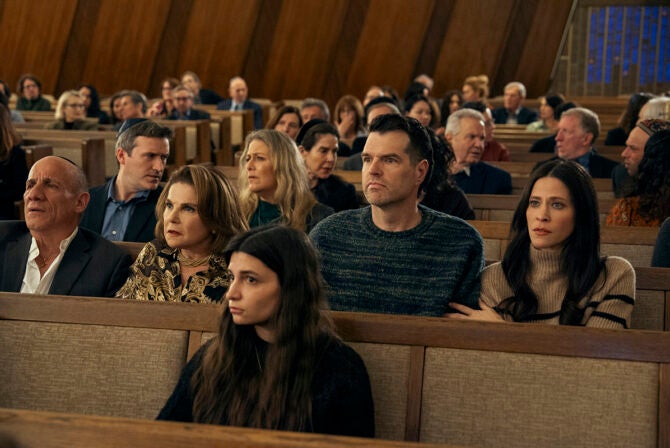In the year before she took the stage at the Israeli reality show competition “Next Star (To the Eurovision),” which uses a combination of judges and audience votes to select the Israeli contestant for Europe’s biggest televised music event, Yuval Raphael had spent time on very different platforms: at the Israeli Knesset and the UN, where she shared her experience as a survivor of the Nova massacre on October 7.
Raphael was at the Nova festival on October 7, 2023, and hid in a shelter off the road where she had run to with a group of other revelers to hide from the Hamas militants who fired at them repeatedly for eight hours. Over 300 people were killed at the festival, and out of the 50 people hiding in that shelter, only 11 survived. On a phone call with her father, Raphael told him that she was hiding under the bodies of the victims to stay safe. “Play dead,” he urged her, and she said it was that advice that helped her survive.
Before singing at the show’s audition phase two months ago, the judges and crowd got to hear Raphael’s story, as she retold it to the show’s hosts, Rotem Sela and Asi Azar. Raphael said participating in the show, and hopefully in the Eurovision itself, would offer a mix of the two ways she’d been fighting off PTSD since October 7 — singing and advocacy.
Raphael chose to sing a very popular reality TV audition song — Demi Lovato’s “Anyone,” which details the singer’s mental health breakdown. While she knew it was an overused tune, she felt that the emotion in it perfectly channeled her state of mind. It was hard not to imagine her back in that shelter, fighting for her life, as she sang on stage a song about a person asking if there was anyone out there who could save her. But it was her vocals that ended up winning over the judges, many of whom wept openly during her performance. The panel included singer Keren Peles, a co-writer of last year’s Eurovision song, Eden Golan’s “Hurricane.”
Raphael lived with her family in Switzerland as a child, and she said that representing Israel at the competition in Basel (Switzerland’s Nemo won last year’s contest, making his country this year’s host) would feel like coming full circle in many ways. The 24-year-old singer is fluent in French and even sang the 2024 French representative’s song, “Mon Amour,” in one of the stages of the competition.
Yet it was another singer who was a clear favorite to win, despite some pushback — Valery Hamaty, who made it to second place in the eighth season of the reality TV competition in 2021. Hamaty is a well-known Arab-Israeli singer who has starred in TV shows like the excellent teen drama “Madrasa,” “Thalatha” and the upcoming “Tahrir,” and is also a prolific singer with an incredible voice. At the finale, she sang the peaceful anthem “Imagine” by John Lennon.
“I wish there was nothing that we would kill and die for, that we just live with love and peace,” Hamaty said in an interview after the finale. “In the end that message is more important than any victory in the competition. That’s the real victory. It was important for me to pass that message on until my last performance, and no matter where I am, I will represent my country in the world and here with the most honor and pride that it deserves, because this is my country that I love,” she continued.
Raphael sang another iconic song during the finale, 1974 Eurovision winner Abba’s “Dancing Queen.”
“I imagined the girls who were killed at the Nova dancing with me,” she said about that performance. When asked how she would deal with the jeers that Eden Golan faced at the competition last year, she replied that she’s willing to pay an emotional price to represent Israel. “Yes, my soul is important. I will surround myself with the right people to keep balance as much as I can, but I have full faith [in myself]… If this is the price I need to pay to represent my country, I will pay it,” she told Ynet.
When asked if she had a message for the Israeli prime minister as the person representing his country in the Eurovision, she responded: “That he bring all our hostages back home.”
1998 Eurovision winner Dana International, the contest’s first transgender winner, said that Hamaty’s performance of “Imagine” reminded her of the possibility of peace again — something that, she wrote on her Instagram stories, has not been talked about enough since October 7, something that gave her hope at the time when “the failed leadership” of two people are fighting wars. She wrote about how she would love to see Raphael and Hamaty take the stage of the European song contest together, a reminder that things can be different (a Jewish Israeli and Arab singer already took the stage in 2009, but that was a very different time).
“You may say I’m a dreamer,” she wrote, but, “I’ve been there and sometimes, a song in the Eurovision can make the world a bit of a better place.”








